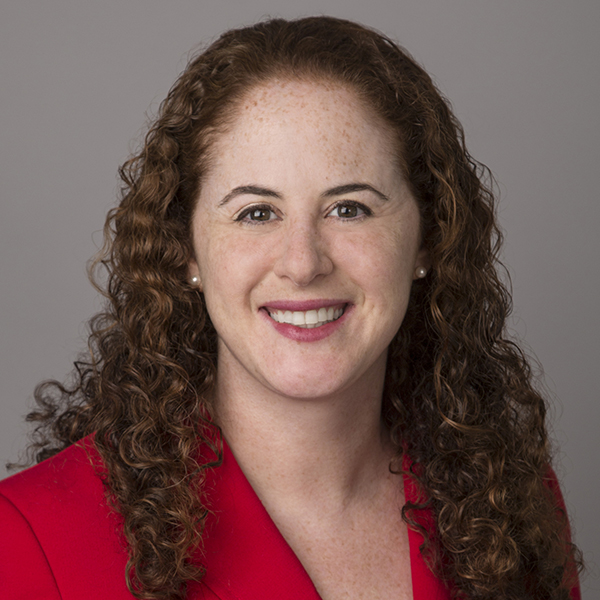
This Week in Derivatives
May 17, 2024
From the Derivatives Practice Group: ISDA published several reports and responses this week, including a quantitative impact study on the US Basel III proposal, and a response to CPMI and IOSCO’s variation margin practices.
New Developments
- CFTC Issues Proposal on Event Contracts. On May 10, the CFTC issued a Notice of Proposed Rulemaking to further specify types of event contracts that fall within the scope of Commodity Exchange Act (CEA) section 5c(c)(5)(c) and are contrary to the public interest. The proposal includes a determination that event contracts involving each of the activities enumerated in CEA section 5c(c)(5)(c) (gaming, war, terrorism, assassination, and activity that is unlawful under any Federal or State law) are, as a category, contrary to the public interest and therefore may not be listed for trading or accepted for clearing on or through a CFTC-registered entity. Further, the proposal defines “gaming” in detail, and the proposal lists illustrative examples of gaming that include staking or risking something of value on the outcome of a political contest, an awards contest, or a game in which one or more athletes compete, or an occurrence or non-occurrence in connection with such a contest or game. Thus, event contracts involving these illustrative examples of gaming could not be listed for trading or accepted for clearing under the proposal. Comments must be received on or before July 9, 2024. [NEW]
- Statement of Chairman Rostin Behnam Regarding Proposed Event Contracts Rulemaking. On May 10, CFTC Chairman Rostin Behnam remarked on his support for the proposed amendments to the Commission’s rules concerning event contracts. The Chairman remarked that the Commission proposes to further specify the types of event contracts that fall within the scope of CEA section 5c(c)(5)(C) and are contrary to the public interest. He believes that the amendments will support efforts by registered entities to comply with the CEA by more clearly identifying the types of event contracts that may not be listed for trading or accepted for clearing.
- CFTC Technology Advisory Committee Advances Report and Recommendations to the CFTC on Responsible Artificial Intelligence in Financial Markets. On May 2, the CFTC’s Technology Advisory Committee (TAC) released a Report on Responsible AI in Financial Markets. The CFTC stated that the TAC issued a Report that facilitates an understanding of the impact and implications of the evolution of AI on financial markets. The Committee made five recommendations to the Commission as to how the CFTC should approach this AI evolution to safeguard financial markets. The Committee urged the CFTC to leverage its role as a market regulator to support the current efforts on AI coming from the White House and Congress.]
- CFTC Chairman Behnam Designates Ted Kaouk as the CFTC’s First Chief Artificial Intelligence Officer. On May 1, CFTC Chairman Rostin Behnam announced the designation of Dr. Ted Kaouk as the agency’s first Chief Artificial Intelligence Officer. Dr. Kaouk currently serves as the CFTC’s Chief Data Officer and Director of the Division of Data. The CFTC stated that in this newly expanded role as the CFTC’s Chief Data & Artificial Intelligence Officer, Dr. Kaouk will be responsible for leading the development of the CFTC’s enterprise data and artificial intelligence strategy to further integrate CFTC’s ongoing efforts to advance its data-driven capabilities.
New Developments Outside the U.S.
- ESMA Publishes Data on Markets and Securities in the EEA. On May 16, ESMA published the Statistics on Securities and Markets (ESSM) Report, with the objective of increasing access to data of public interest. The report provides details about how securities markets in the European Economic Area (EEA30) were organized in 2022, including structural indicators on securities, markets, market participants and infrastructures. It covers the distribution of legal entities by member states, either based on their supervisory role or their location. It also contains information on third country entities when their activities are recognized (e.g., CCPs or benchmark administrators) or when their securities are traded in EEA30 (e.g., information on issuers and securities available for trading). [NEW]
- ESMA to Host Web Event on Effective and Attractive Capital Markets. On May 22, ESMA will host an online event focused on the launch of its Position Paper on the effectiveness of capital markets in the European Union. Natasha Cazenave, ESMA Executive Director, will be moderating the event and Verena Ross, ESMA Chair, will present the paper and take questions from the audience. Registrations are now open. [NEW]
- ESMA Guidelines Establish Harmonized Criteria for use of ESG and Sustainability Terms in Fund Names. On May 14, following the public statement of December 14, 2023, ESMA published the final report containing Guidelines on funds’ names using ESG or sustainability-related terms. The objective of the Guidelines is to ensure that investors are protected against unsubstantiated or exaggerated sustainability claims in fund names, and to provide asset managers with clear and measurable criteria to assess their ability to use ESG or sustainability-related terms in fund names. The Guidelines establish that to be able to use these terms, a minimum threshold of 80% of investments should be used to meet environmental, social characteristics or sustainable investment objectives. [NEW]
- ESMA Asks for Input on Assets Eligible for UCITS. On May 7, ESMA published a Call for Evidence on the review of the Undertakings for Collective Investment in Transferable Securities (UCITS) Eligible Assets Directive (EAD). The objective of this call is to gather information from stakeholders to assess possible risk and benefits of UCITS gaining exposure to various asset classes. Investors and consumer groups interested in retail investment products, management companies of UCITS, self-managed UCITS investment companies, depositaries of UCITS and trade associations are invited to provide their feedback on market practices and interpretation or practical application issues with respect to the eligibility criteria and other provisions set out in the UCITS EAD.
New Industry-Led Developments
- US Basel III Endgame: Trading and Capital Markets Impact. On May 16, in response to the US Basel III proposal, ISDA and the Securities Industry and Financial Markets Association (SIFMA) conducted a quantitative impact study (QIS) that showed that the market risk portion of the proposal, known as the Fundamental Review of the Trading Book, will result in a substantial increase in market risk capital of between 73% and 101%, depending on the extent to which banks use internal models. [NEW]
- International Money Market Dates Market Practice Note. On May 15, ISDA published the International Money Market Dates Practice Note regarding setting the start date/effective date for over-the-counter interest rate derivatives traded by reference to an international money market date. [NEW]
- ISDA Publishes DC Review and Launches Market Consultation. On May 13, ISDA published an independent review on the structure and governance of the Credit Derivatives Determinations Committees (DCs) and launched a market-wide consultation on its recommendations. The review covers the composition, functioning, governance, and membership of the DCs. The report makes several recommendations on possible changes that could be made to improve the structure of the DCs, which are now available on the ISDA website for public consultation. [NEW]
- ISDA and FIA Response to CFTC on Swaps LTR Rules (Part 20). On May 13, ISDA and FIA responded to the CFTC’s proposed request for approval from the Office of Management and Budget to continue to collect information related to certain physical commodity swap positions in accordance with the CFTC’s swaps large trader reporting (LTR) rules. In the response, the associations request that the CFTC sunset the swaps LTR rules with §20.9 sunset provision. [NEW]
- ISDA and IIF Response to CPMI-IOSCO on VM Practices. On May 10, ISDA and the Institute of International Finance (IIF) responded to a discussion paper on variation margin (VM) practices by the Committee on Payments and Market Infrastructures (CPMI) and the International Organization of Securities Commissions (IOSCO). The associations are supportive of the effective practices on frequency, scheduling, and timing, pass through of VM, excess collateral and transparency from central counterparties (CCPs) to clearing members (CMs), which would foster market participants’ readiness for above-average VM calls. On effective practice 8 on transparency from CMs to clients on intraday VM calls, the response highlights that most CMs do not pass on intraday VM calls to their clients and this information would therefore not be relevant. [NEW]
- ISDA and AFME Respond to FCA Publicizing Enforcement Consultation. On April 30, ISDA and the Association for Financial Markets in Europe (AFME) responded to a Financial Conduct Authority (FCA) proposal that would give it the ability to publicly name firms at the start of an investigation and before a decision has been reached on whether to take further action. According to ISDA, there has been a considerable reaction to the proposals across the financial services industry, and the response highlights various risks and concerns with the proposals, including the risk to the competitiveness of the UK, damage to shareholder value and reputation of the sector, and worse outcomes for consumers.
- ISDA, SIFMA, and CCMA Publish T+1 Settlement Cycle Booklet. On April 30, ISDA, the Securities Industry and Financial Markets Association (SIFMA) and the Canadian Capital Markets Association (CCMA) published a T+1 settlement cycle booklet to address queries from market participants on the settlement cycle changes taking place in North America on May 27-28, 2024, and the possible impact to relevant securities and over-the-counter (OTC) derivatives transactions. This booklet may be updated from time to time.
- ISDA Publishes Sub-Annex A Maintenance Guidelines for the 2005 ISDA Commodity Definitions. On April 30, ISDA published maintenance guidelines for Sub-Annex A of the 2005 ISDA Commodity Definitions. Sub-Annex A contains definitions for various Commodity Reference Prices.
Practice Group Members

|
Jeffrey L. Steiner Washington, D.C. 202.887.3632 [email protected] |

|
Michael D. Bopp Washington, D.C. 202.955.8256 [email protected] |
|

|
Michelle M. Kirschner London +44 (0)20 7071.4212 [email protected] |

|
Darius Mehraban New York 212.351.2428 [email protected] |
|

|
Jason Cabral New York 212.351.6267 [email protected] |

|
Adam Lapidus New York 212.351.3869 [email protected] |
|

|
Stephanie L. Brooker Washington, D.C. 202.887.3502 [email protected] |

|
William R. Hallatt Hong Kong +852.2214.3836 [email protected] |
|

|
David P. Burns Washington, D.C. 202.887.3786 [email protected] |

|
Marc Aaron Takagaki New York 212.351.4028 [email protected] |
|

|
Hayden K. McGovern Dallas 214.698.3142 [email protected] |

|
Karin Thrasher Washington, D.C. 202.887.3712 [email protected] |
|
Attorney Advertising: These materials were prepared for general informational purposes only based on information available at the time of publication and are not intended as, do not constitute, and should not be relied upon as, legal advice or a legal opinion on any specific facts or circumstances. Gibson Dunn (and its affiliates, attorneys, and employees) shall not have any liability in connection with any use of these materials. The sharing of these materials does not establish an attorney-client relationship with the recipient and should not be relied upon as an alternative for advice from qualified counsel. Please note that facts and circumstances may vary, and prior results do not guarantee a similar outcome.
If you would prefer NOT to receive future emailings such as this from the firm,
please reply to this email with "Unsubscribe" in the subject line.
If you would prefer to be removed from ALL of our email lists,
please reply to this email with "Unsubscribe All" in the subject line. Thank you.
© 2024 Gibson, Dunn & Crutcher LLP. All rights reserved. For contact and other information, please visit us at gibsondunn.com